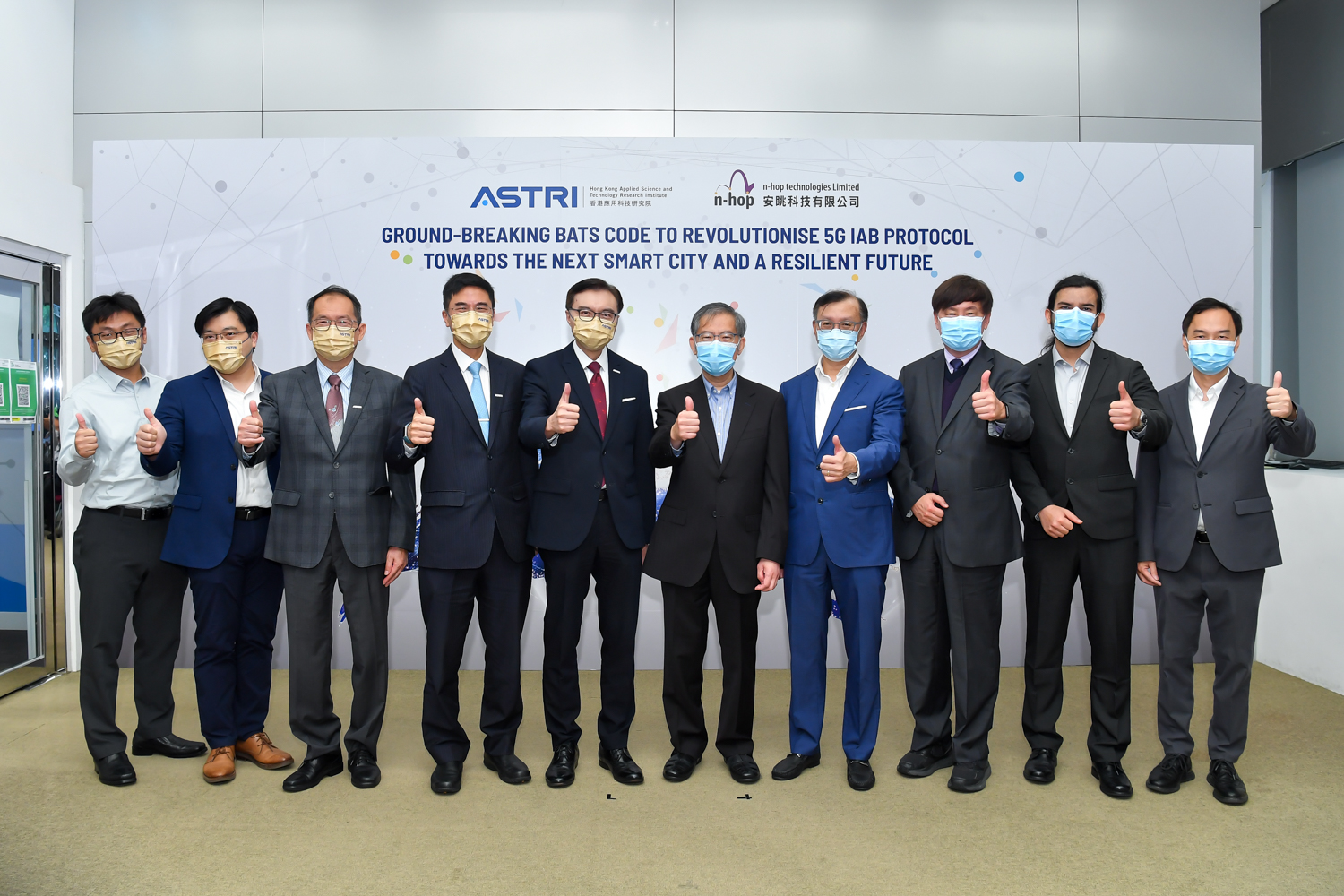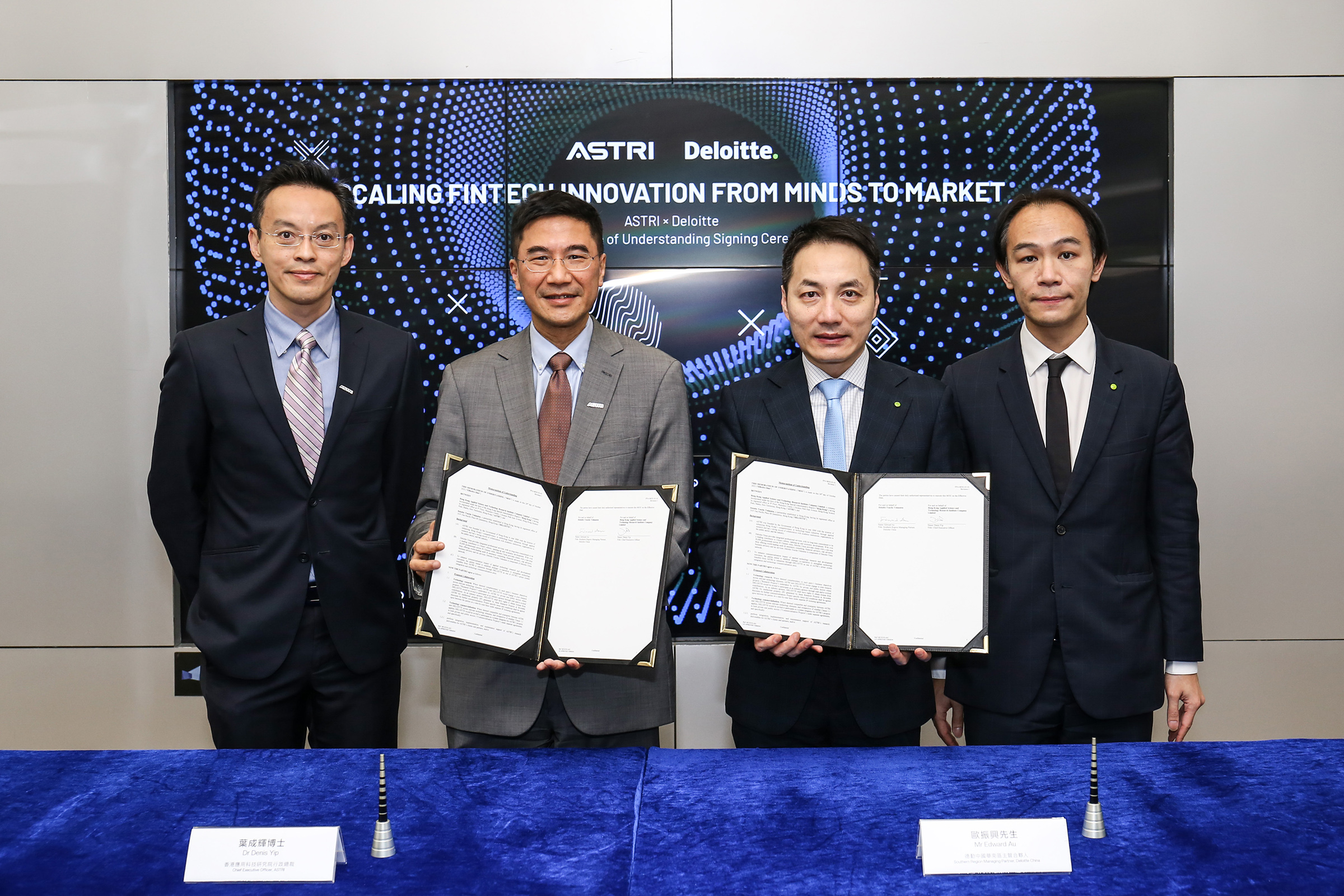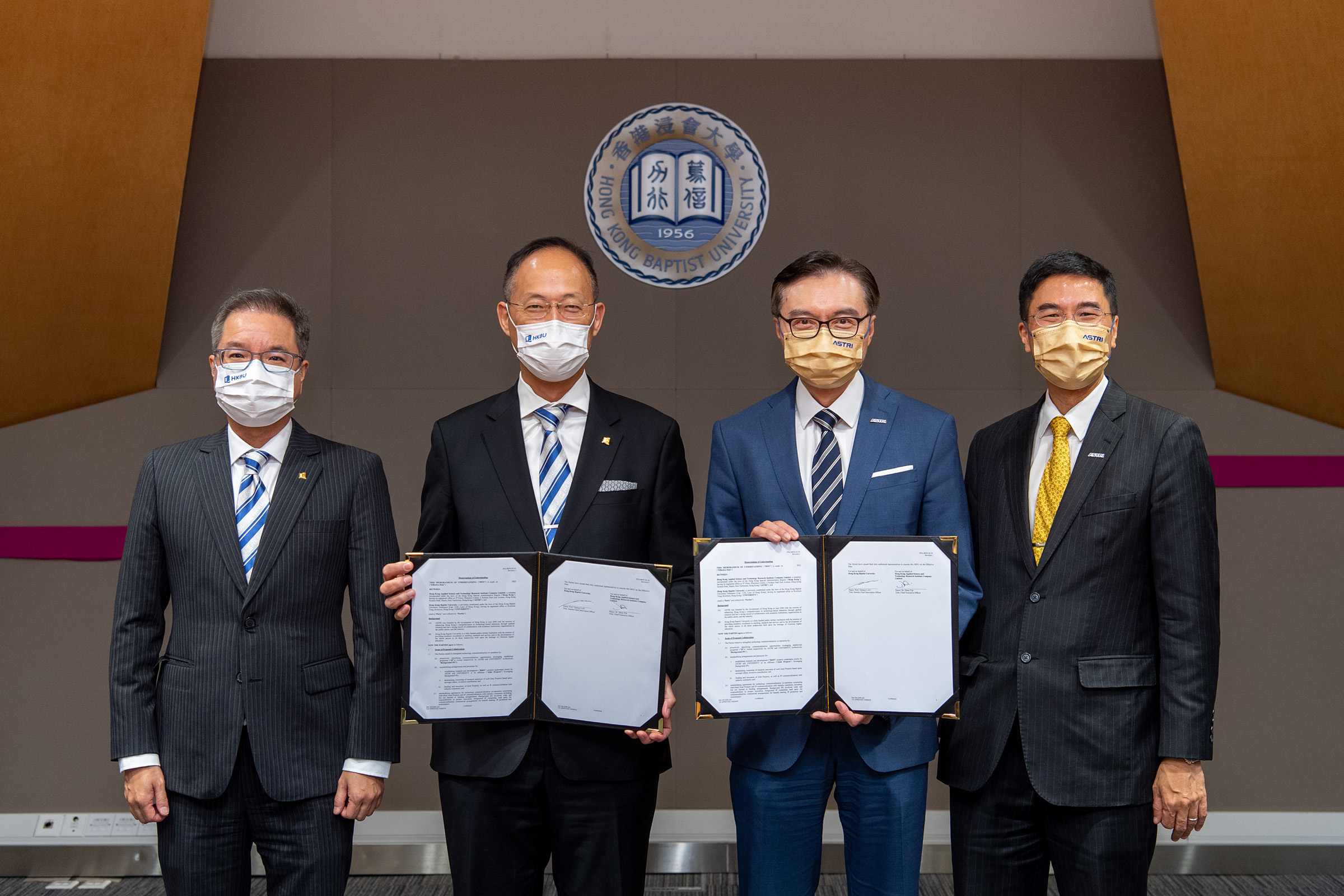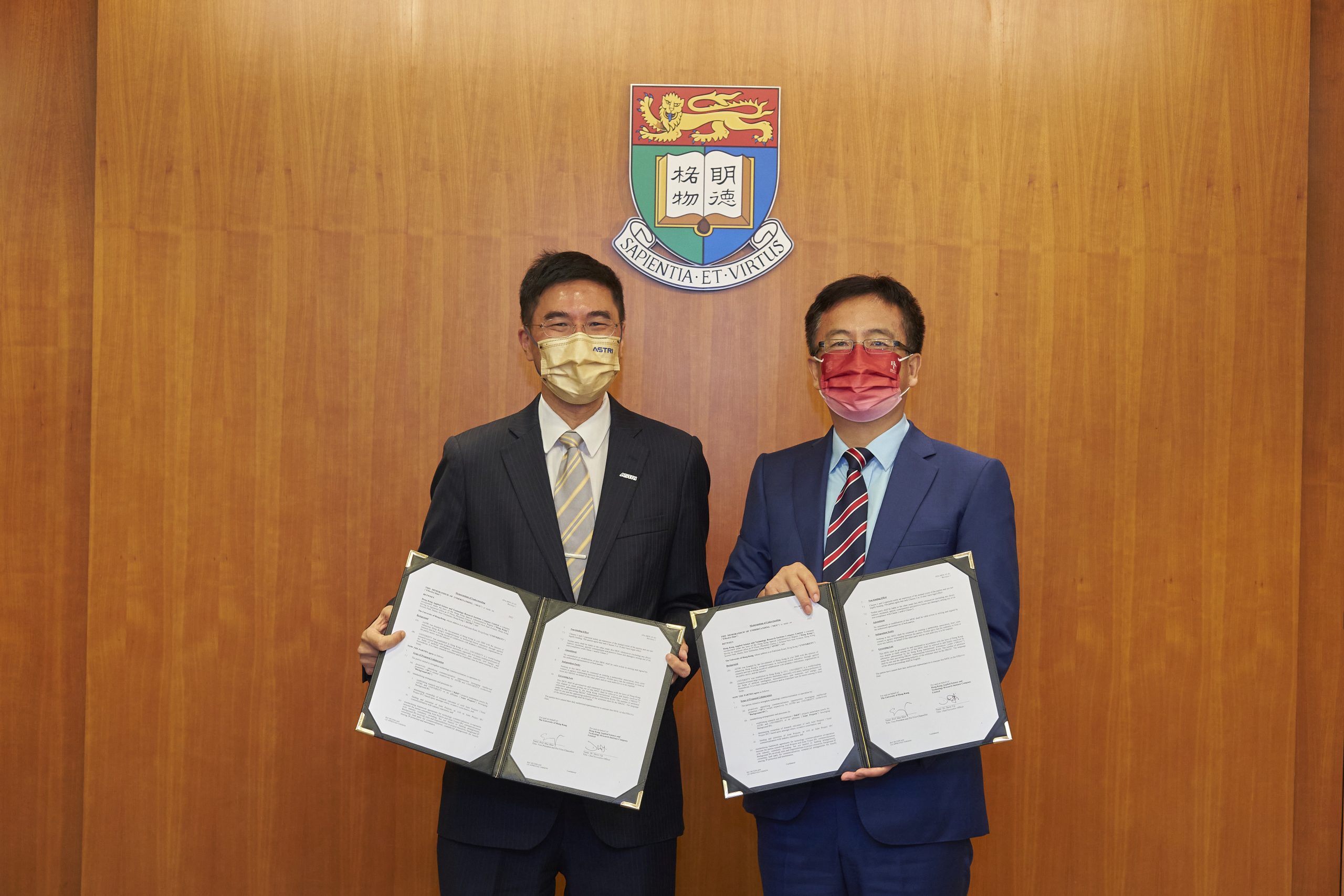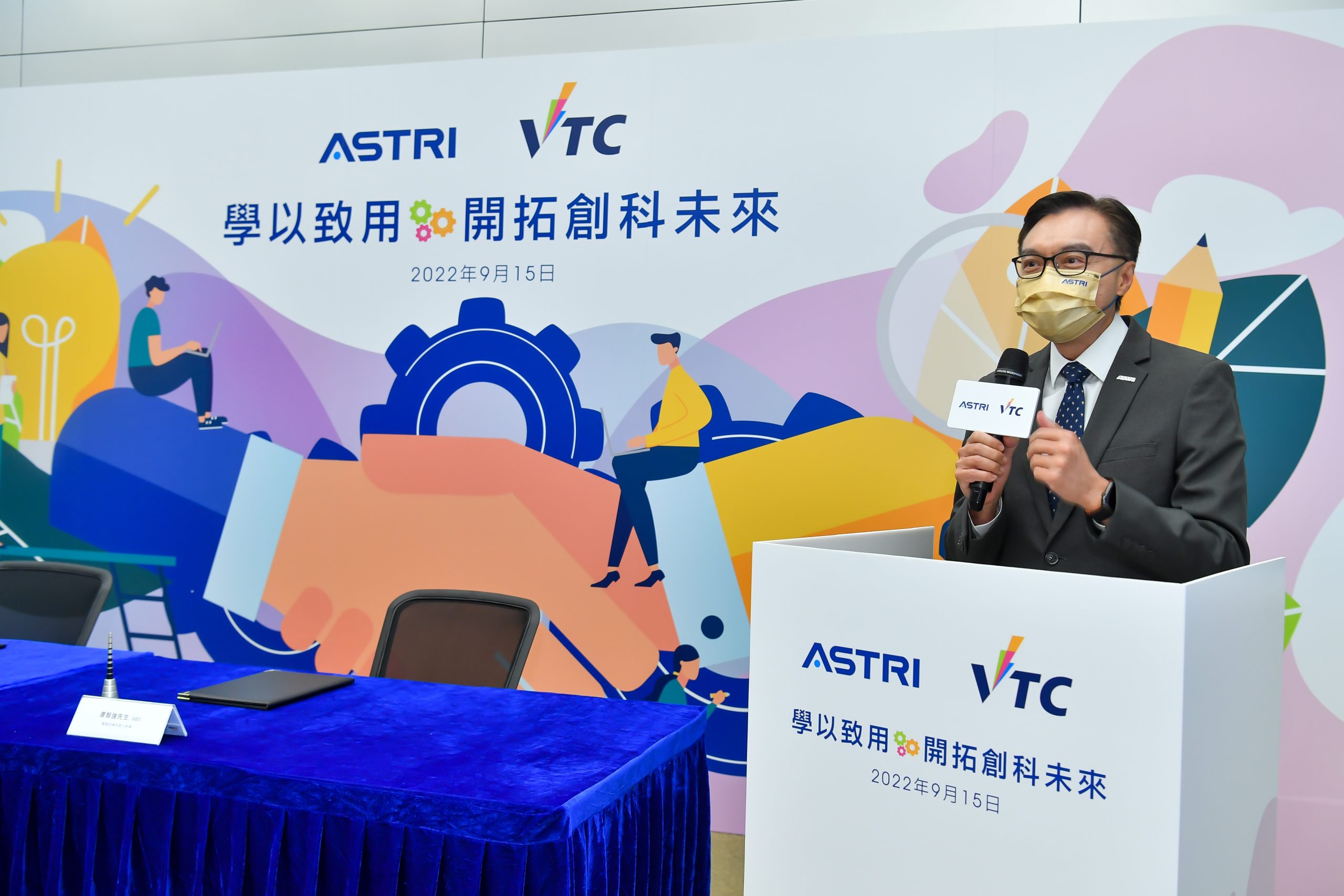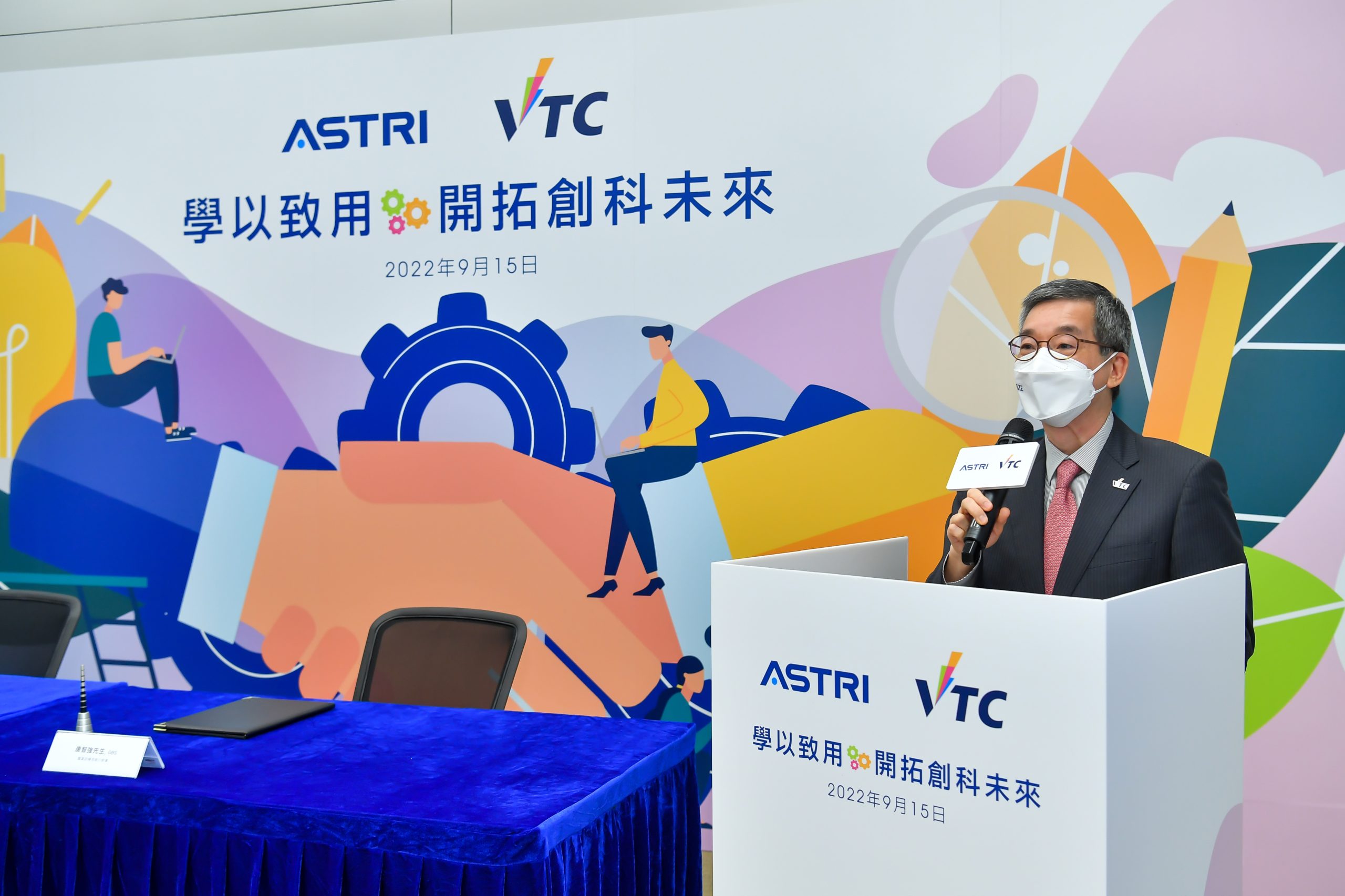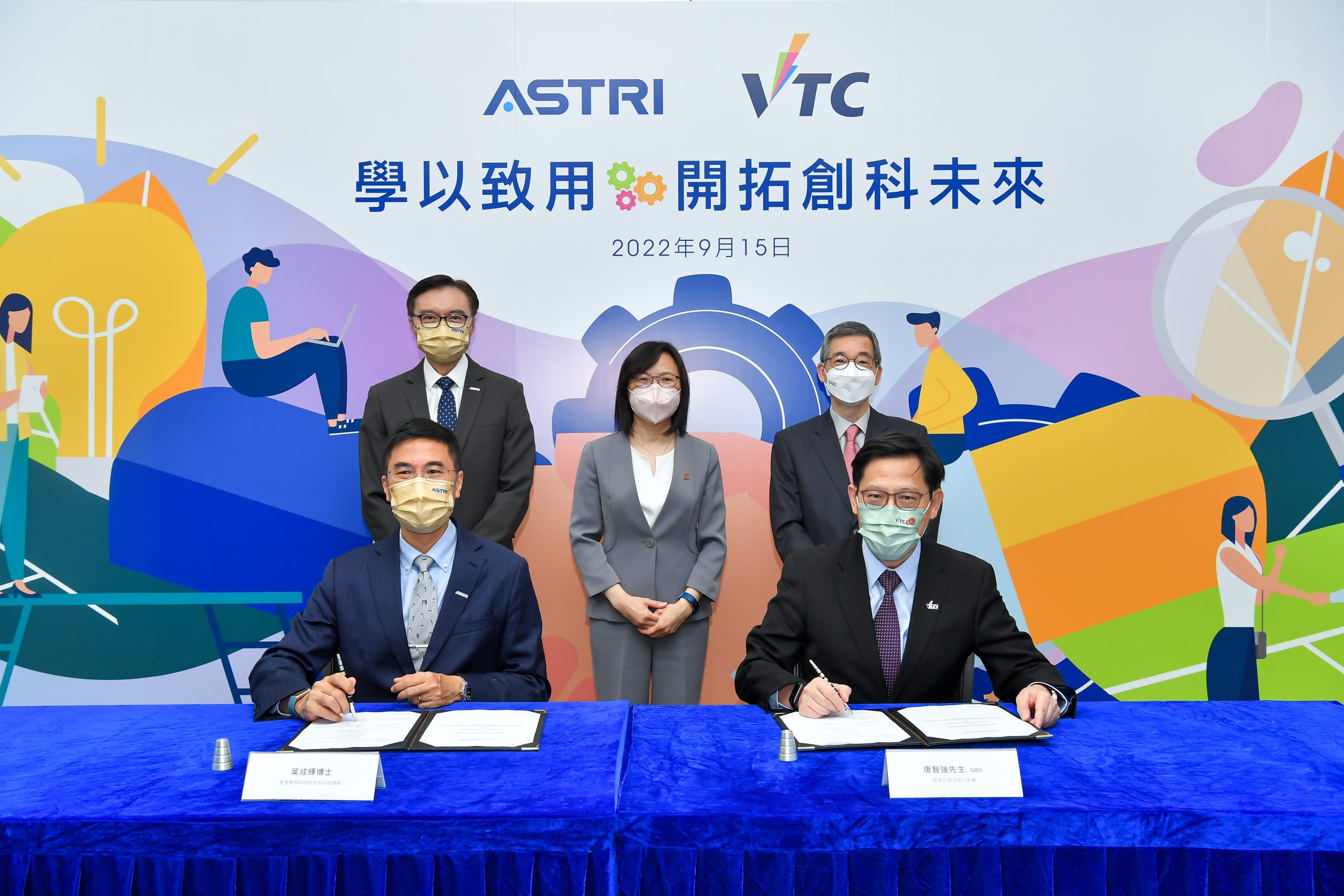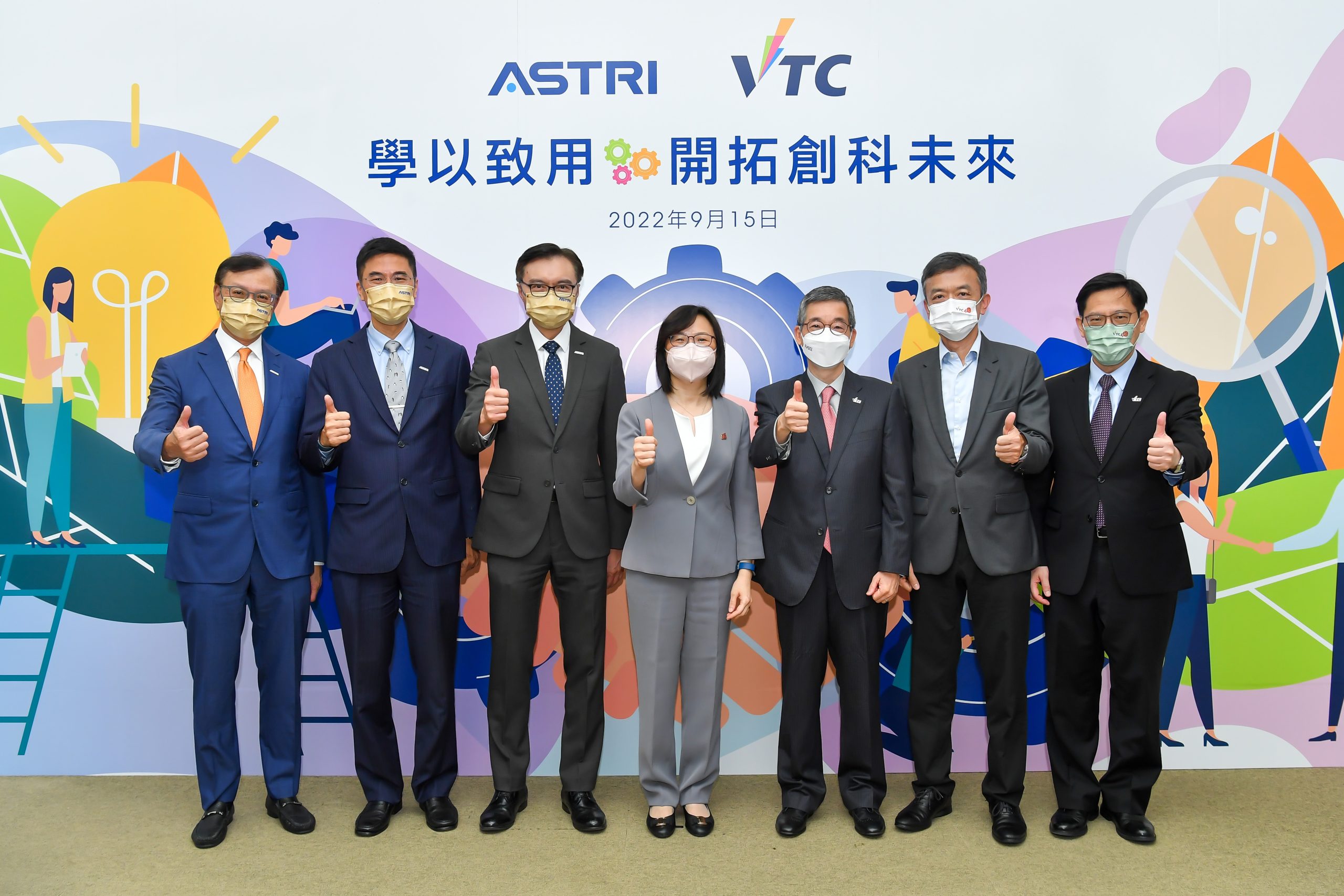[Hong Kong, 9 November 2022] The Hong Kong Applied Science and Technology Research Institute (“ASTRI”) today announced the establishment of the “Microelectronics Technology Consortium (METC)”, with the aim of building a microelectronics and semiconductor technology ecosystem, and providing a top-notch regional and world-renowned platform for microelectronics technology and product development. Professor Sun Dong, JP, Secretary for Innovation, Technology and Industry, Ms. Rebecca Pun Ting-ting, JP, Commissioner for Innovation and Technology, as well as high-end experts and key enterprise representatives from academic and microelectronics sectors got together to witness the establishment of METC.
Ir. Sunny Lee, Board Chairman of ASTRI said, “The establishment of ‘Microelectronics Technology Consortium (METC)’ today signifies another important milestone for ASTRI. It requires innovation and determination to carry out basic research starting from ‘0 to 1’; however, to achieve ‘1 to N’, a staunch support from all walks of life is necessary to foster in-depth integration of the science, technology and industry, so as to achieve a vitalised microelectronics ecosystem. METC will play a role as a bridge to connect the academic community with the industry, dedicated to facilitating the re-industrialisation in Hong Kong, directing a new way of development for the industry, academia and research institutes, and continuously making contributions to the transformation of Hong Kong into an international innovation and technology hub.”
Dr. Denis Yip, Chief Executive Officer of ASTRI said, “The development of the microelectronics industry will expand the local re-industrialisation talent pool and inject new impetus into Industry 4.0 and the business community with the aim to enhance the competitiveness of Hong Kong. ASTRI has been conducting R&D in 3D integrated chips, the third-generation semiconductors and low-power wireless connection chips for a decade. We have extensive experience in the operation and management of public platforms and pilot lines, talent support, and technology and product commercialisation, which are widely recognised by the industry and academia. We also as have a number of outstanding credentials in industrialisation and commercialisation. We expect the establishment of METC is able to consolidate resources in Hong Kong to promote the commercialisation of technologies and products, nurture local talents, foster international cooperation, expand the Greater Bay Area (GBA) market, and provide strong support to Hong Kong’s re-industrialisation and transform the city into an innovation and technology hub.”
Establish a Microelectronics Technology Consortium to promote the development of the regional ecosystem and lead the innovation frontier
The Hong Kong Government is determined to develop high-tech industries, aiming to make Hong Kong into an international innovation and technology centre. In recent years, it has earmarked billions of funds to support local re-industrialisation. Semiconductor technology is the core of the entire manufacturing industry. By taking the advantages of the current technological upgrading and rearrangement of the global industrial chain, METC is established at the right time to enable support units to deeply understand and maintain close ties with stakeholders on microelectronics solutions, knowledge transfer and collaboration opportunities, so as to lead and enhance the cross-industry platform for the development of microelectronics industry in Hong Kong from an international perspective.
The development of microelectronics ecosystem requires various stakeholders to maintain close ties and foster cooperation in order to accelerate the integration of Hong Kong into the national development. Led by ASTRI, METC is supported by the leading organisations from the industry and academia including Federation of Hong Kong Industries, AAC Technologies, ASMPT Hong Kong, Marvel Digital AI Limited, SPES Electronics Limited, the Hong Kong Polytechnic University, the Hong Kong University of Science and Technology, City University of Hong Kong, the Chinese University of Hong Kong, and the University of Hong Kong. METC aims to stimulate innovative R&D, promote technological cooperation amongst the industries, research institutes and academia, attract research institutes and enterprises from GBA, the Mainland and around the world to set up their branches in Hong Kong and expand the paths for local talents, so as to achieve a vibrant microelectronics ecosystem, and make continuous contributions to Hong Kong to make it become an international innovation and technology hub.
The strategies of METC to promote regional integration and create strong competitive microelectronics innovation including:
- Consolidate resources to boost commercialisation
METC will make use of the pilot line to be established, and cooperate with various research institutes in Hong Kong, GBA and overseas to fully integrate existing R&D resources (such as personnel, equipment) and achievements (patents), and centralise resources to develop technologies required for industrialisation, so as to accelerate the process of product marketization. - Leverage strengths to scale up collaborative innovation
To achieve the goals of application in large enterprises, METC will use the commercialisation model and the concept of collaborative innovation, and effectively integrate various local and overseas resources to form an entire industry chain of “Material-Equipment-Epitaxy-Device-Chip-Package-Module-System” to jointly secure the market share of 3D small chip and the third-generation semiconductor sectors in emerging markets.
ASTRI has over 10 years of experience in microelectronics R&D. Since 2006, ASTRI has formed a multinational technical team to take the lead in conducting 3D integration technology research in Greater China, and participated in the direction planning of key national special projects. In 2012, the Hong Kong Branch of the Chinese National Engineering Research Centre for Application Specific Integrated Circuits (CNERC) was established with the approval from the State Ministry of Science and Technology, and operated by ASTRI. Since then, ASTRI has committed to promoting the development of microelectronics technology industry in Hong Kong, and has conducted R&D, engineering transformation and talent training in three directions, namely 3D integrated chips, third-generation semiconductors and low-power wireless connection chips. In 2016, ASTRI presided over the formulation of China’s Third-Generation Semiconductor Power Electronics Roadmap 2035, and represented China to participate in the formulation of the IEEE International Technology Roadmap to connect extensively with the academia and industry around the globe. ASTRI has also won about 40 technology awards in Hong Kong and overseas, including the First-class Prize of the 2020 State Scientific and Technological Progress Award (3D Integration Technology in Microelectronics).
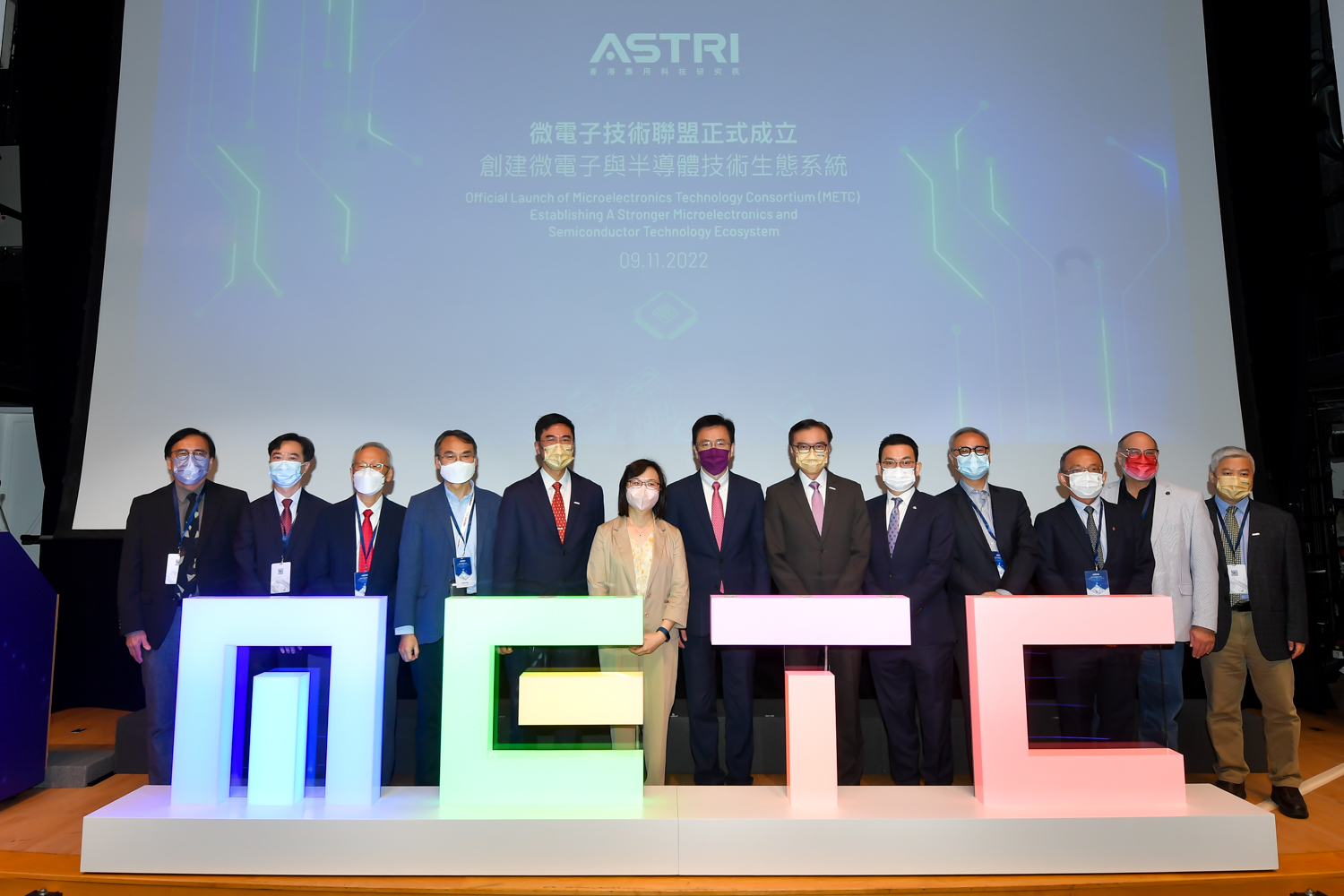
(From left) Prof. Martin Wong, Dean, Faculty of Engineering, CUHK; Prof. Tony Feng, CityU; Prof. Philip Chan, PolyU; Mr. Peter Ng, Vice President, ASMPT HK;
Dr. Denis Yip, ASTRI Chief Executive Officer; Ms. Rebecca Pun, JP, Commissioner for Innovation and Technology; Prof. Sun Dong, JP, Secretary for Innovation, Technology and Industry; Ir. Sunny Lee, BBS, JP, ASTRI Board Chairman; Mr. Steve Chuang, Executive Deputy Chairman, FHKI; Mr. Richard Mok, Executive Director, AAC; Prof. Tim Cheng, HKUST; Prof. David Srolovitz, Dean, Faculty of Engineering, HKU; Dr. Daniel Shi, ASTRI Vice President, Integrated Circuits and Systems
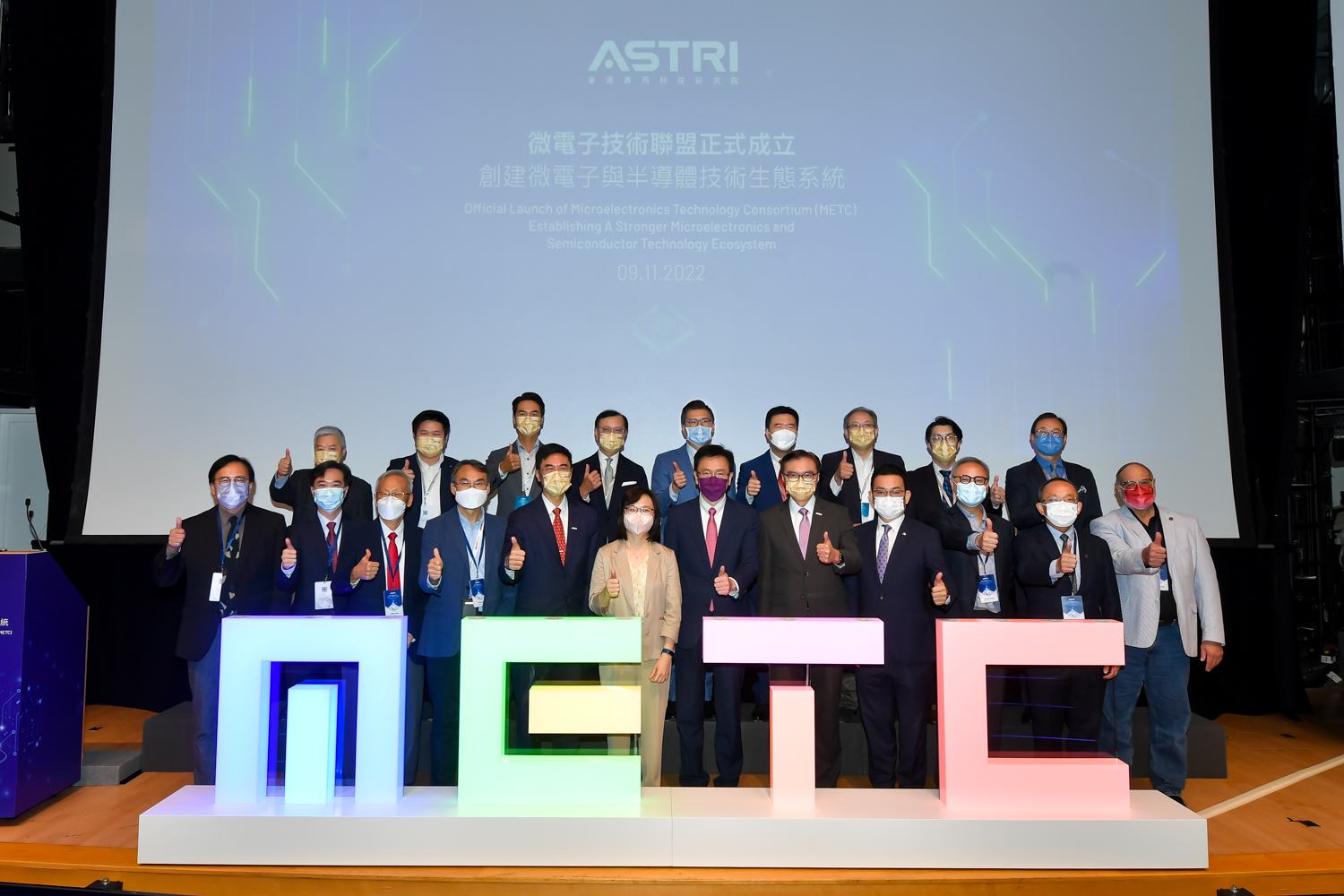
(Front row: form left) Prof. Martin Wong, Dean, Faculty of Engineering, CUHK; Prof. Tony Feng, CityU; Prof. Philip Chan, PolyU; Mr. Peter Ng, Vice President, ASMPT HK; Dr. Denis Yip, ASTRI Chief Executive Officer; Ms. Rebecca Pun, JP, Commissioner for Innovation and Technology; Prof. Sun Dong, JP, Secretary for Innovation, Technology and Industry; Ir. Sunny Lee, BBS, JP, ASTRI Board Chairman; Mr. Steve Chuang, Executive Deputy Chairman, FHKI; Mr. Richard Mok, Executive Director, AAC; Prof. Tim Cheng, HKUST; Prof. David Srolovitz, Dean, Faculty of Engineering, HKU
(2nd row: form left) Dr. Daniel Shi, ASTRI Vice President, Integrated Circuits and Systems; ASTRI Board of Director Dr. Alfred Ng; ASTRI Board of Director Mr. Felix Chow; ASTRI Board of Director Mr. Stephen Ho; Legislative Council Member Mr. Duncan Chiu; Legislative Council Member Mr. Erik Yim; ASTRI Board of Director Prof. Chan Chun-Kwong; ASTRI Board of Director Mr. Edmund Lee; ASTRI Board of Director Mr. Wilfred Wong, BBS, JP
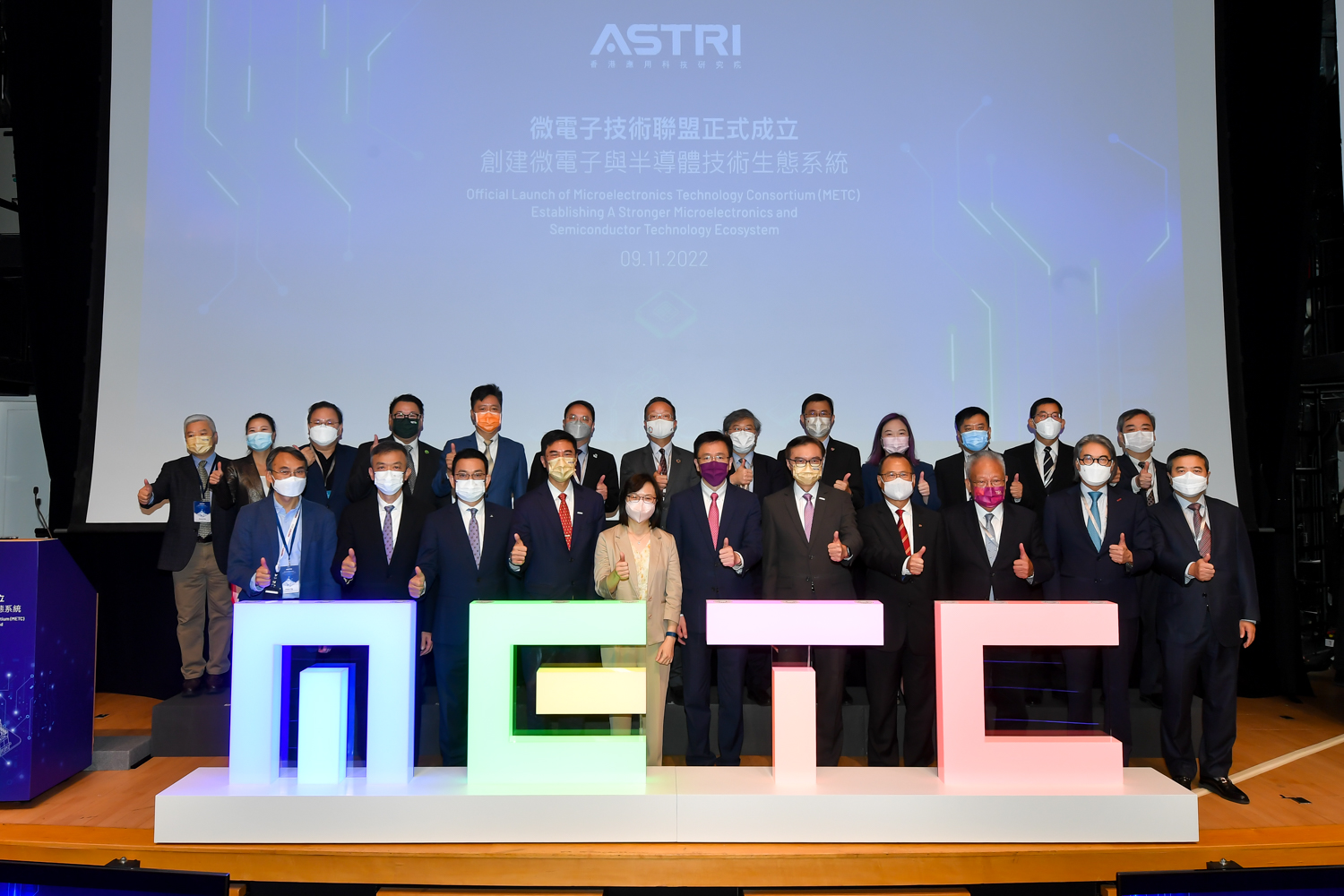
(Front row: form left) Mr. Peter Ng, Vice President, ASMPT HK; Dr. Daniel Yip, Deputy Chairman, VTC, JP; Mr. Steve Chuang, Executive Deputy Chairman, FHKI; Dr. Denis Yip, ASTRI Chief Executive Officer; Ms. Rebecca Pun, JP, Commissioner for Innovation and Technology; Prof. Sun Dong, JP, Secretary for Innovation, Technology and Industry; Ir. Sunny Lee, BBS, JP, ASTRI Board Chairman; Dr. Jonathan Choi, GBM, GBS, BBS, JP, Chairman of CGCC; Dr. Dennis Ng, SBS, BBS MH, Permanent Honorary President, CMA; Mr. Calvin Chau, President, HKGCSMB; Mr. Chen Ying, Chairman of the Board and CEO of China Resources.
(2nd row: form left) Dr. Daniel Shi, ASTRI Vice President, Integrated Circuits and Systems; Ms. Natasha Ho, President, CRECCHKI; Dr. Charleston Sin, Executive Director, MIT Hong Kong Innovation Node; Mr. Dennis Wu, Founder, Founding President, GBACAN; Dr. Ieong MeiKei, Chairman, Simbury Ltd; Ir. Dr. John Hui, Director, Professional & Career Development, FHKCS; Prof. Thomas Wong, Founding President, IISD; Prof. Norman Tien, HKU; Prof. Benny Zee, CUHK; Ms. Fan Ho, General Manager, Lenovo Hong Kong & Macao; Mr. Wilson Chong, Chairman, IOTHK; Mr. Ken Chan, Chairman, Hong Kong Technology Innovation Research and Development Company Limited; Mr. Ping Wong, Chairman, HKACB
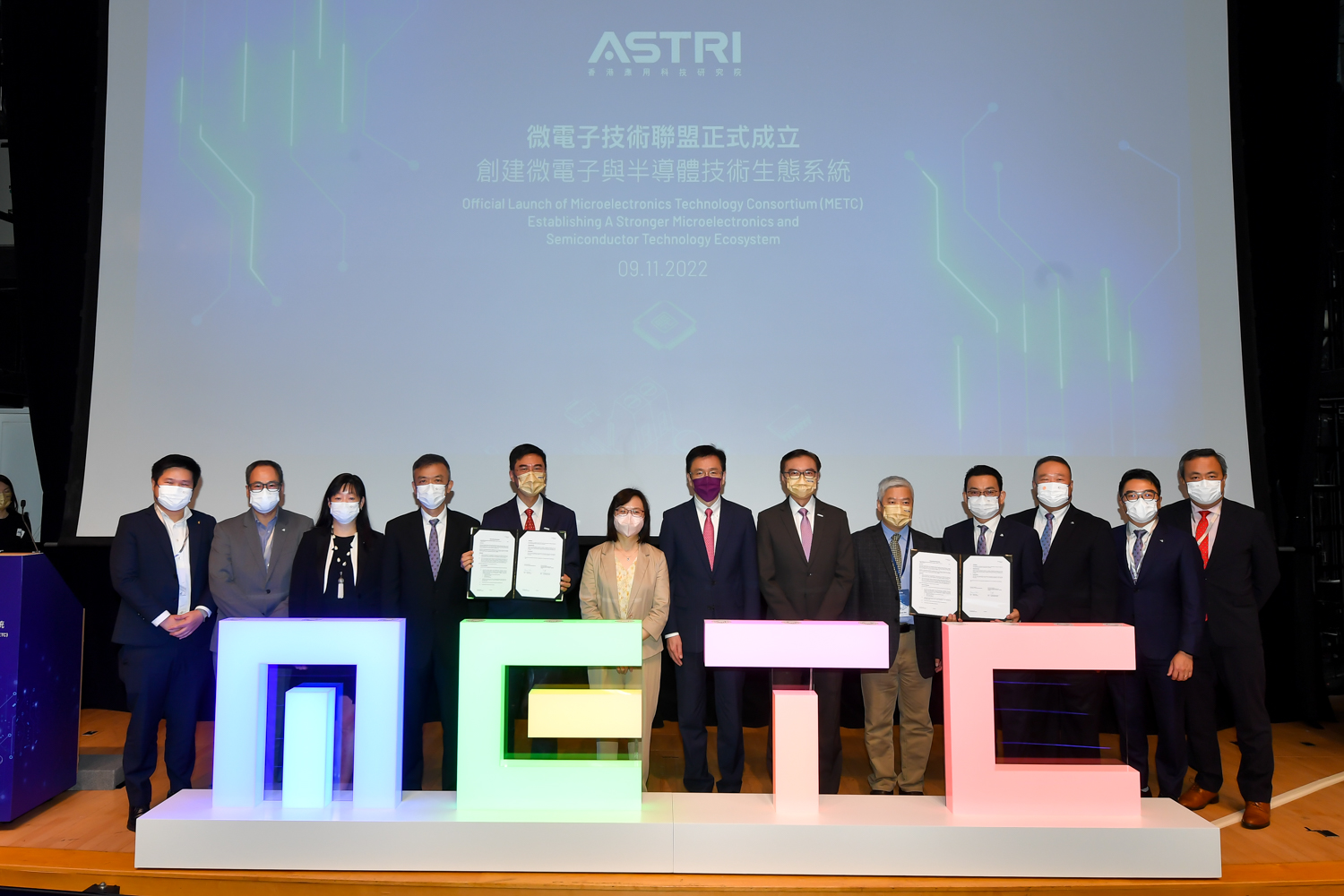
(From left) Dr. Alfred Ng, General Committee, Vice Chairman of Innovation and Technology Development Committee, FHKI; Mr. Peter Shum, General Committee, Vice Chairman of Innovation and Technology Development Committee, FHKI; Ms. Bonnie Chan, Director- General, FHKI; Dr. Daniel Yip, Deputy Chairman, VTC, JP; Dr. Denis Yip, ASTRI Chief Executive Officer; Ms. Rebecca Pun, JP, Commissioner for Innovation and Technology; Prof. Sun Dong, JP, Secretary for Innovation, Technology and Industry; Ir. Sunny Lee, BBS, JP, ASTRI Board Chairman; Dr. Daniel Shi, ASTRI Vice President, Integrated Circuits and Systems; Mr. Steve Chuang, Executive Deputy Chairman, FHKI; Mr. Anthony Lam, Executive Deputy Chairman, FHKI; Mr. Ricky Chan, Executive Deputy Chairman, FHKI; Mr. Bernie Ting, Deputy Chairman, FHKI
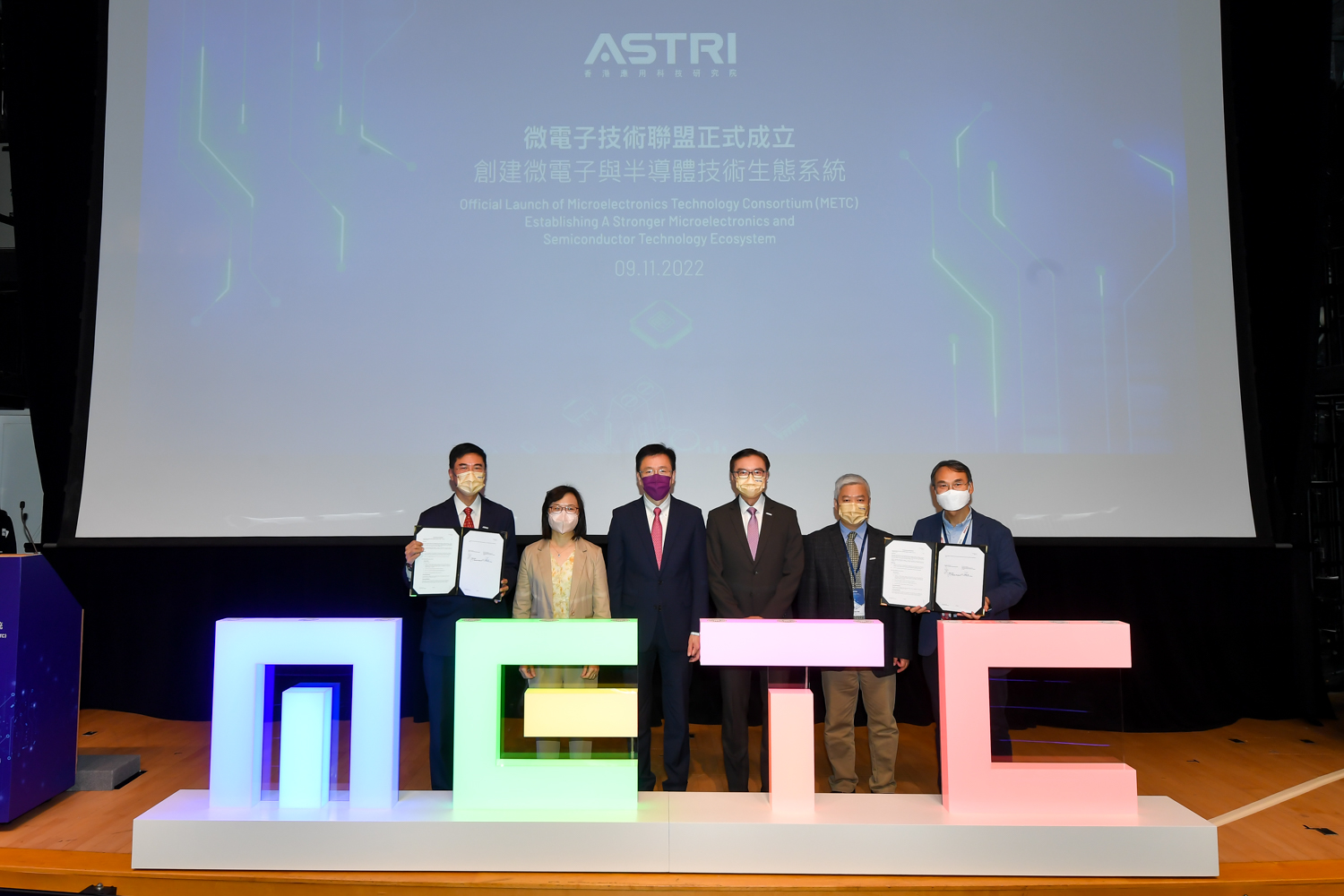
(From left) Dr. Denis Yip, ASTRI Chief Executive Officer; Ms. Rebecca Pun, JP, Commissioner for Innovation and Technology; Prof. Sun Dong, JP, Secretary for Innovation, Technology and Industry; Ir. Sunny Lee, BBS, JP, ASTRI Board Chairman; Dr. Daniel Shi, ASTRI Vice President, Integrated Circuits and Systems; Mr. Peter Ng, Vice President, ASMPT HK
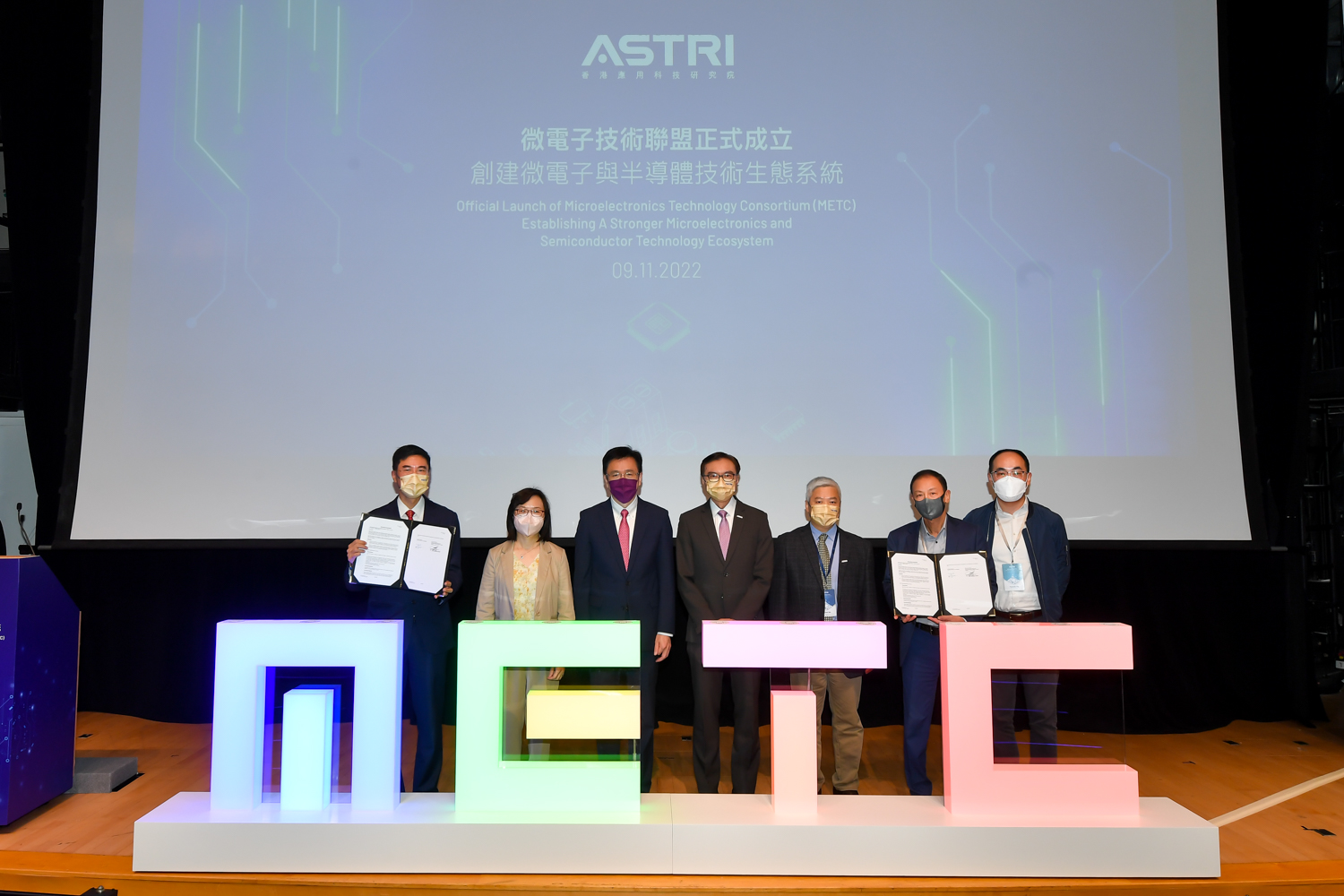
(From left) Dr. Denis Yip, ASTRI Chief Executive Officer; Ms. Rebecca Pun, JP, Commissioner for Innovation and Technology; Prof. Sun Dong, JP, Secretary for Innovation, Technology and Industry; Ir. Sunny Lee, BBS JP, ASTRI Board Chairman; Dr. Daniel Shi, ASTRI Vice President, Integrated Circuits and Systems; Dr. Herbert Lee, Chairman, Marvel Digital AI Limited; Dr. Patrick Ma, CEO, Marvel Digital AI Limited
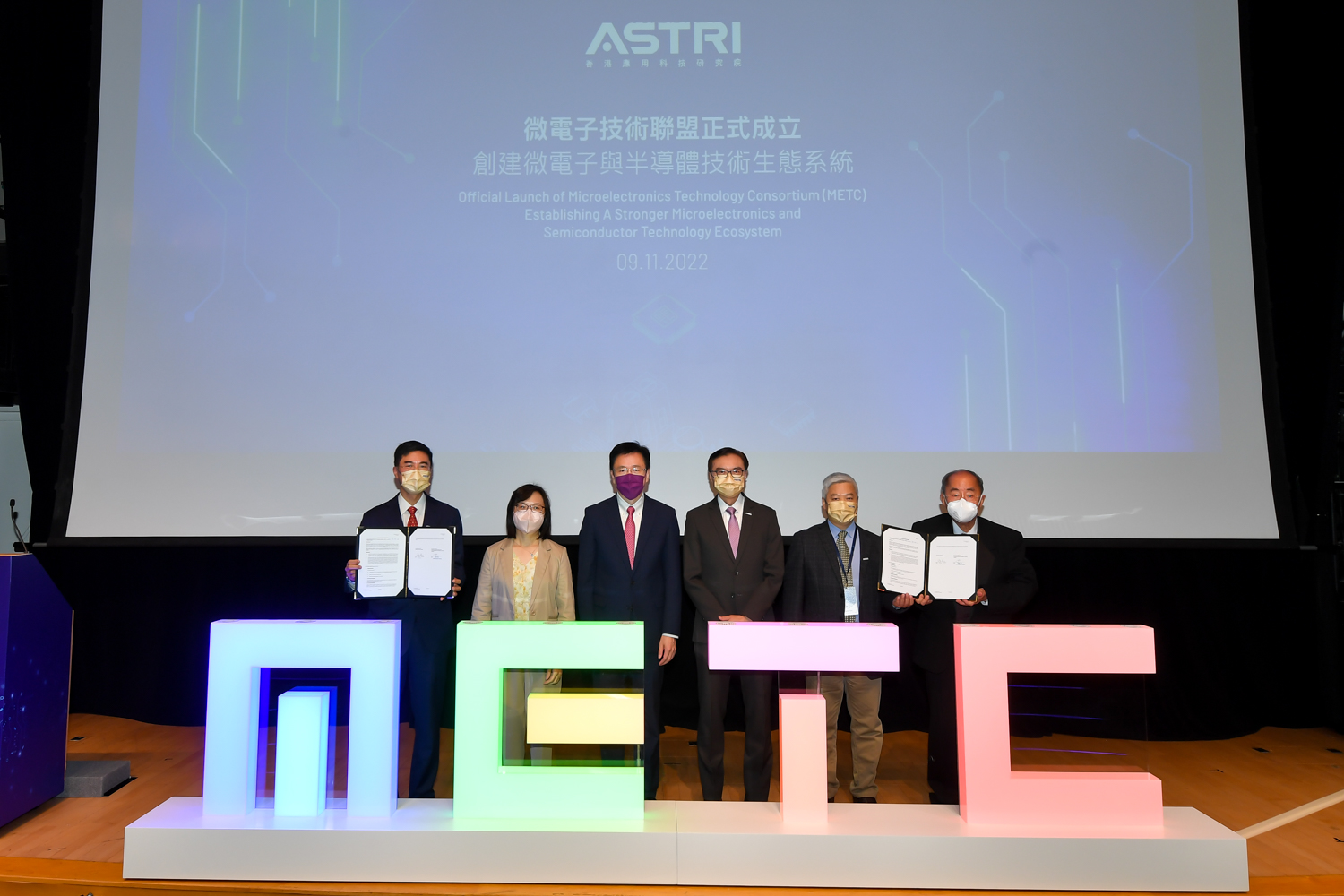
(From left) Dr. Denis Yip, ASTRI Chief Executive Officer; Ms. Rebecca Pun, JP, Commissioner for Innovation and Technology; Prof. Sun Dong, JP, Secretary for Innovation, Technology and Industry; Ir. Sunny Lee, BBS JP, ASTRI Board Chairman; Dr. Daniel Shi, ASTRI Vice President, Integrated Circuits and Systems; Dr. Man Ming, CEO, SPES Electronic Limited


